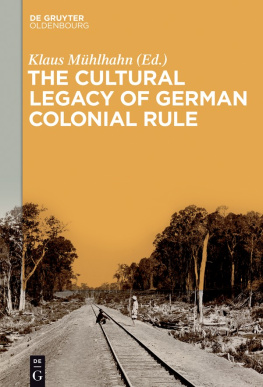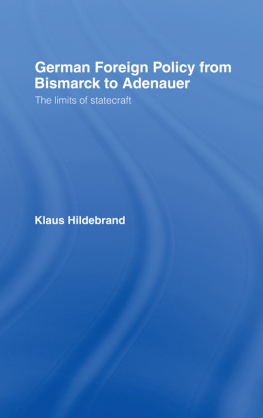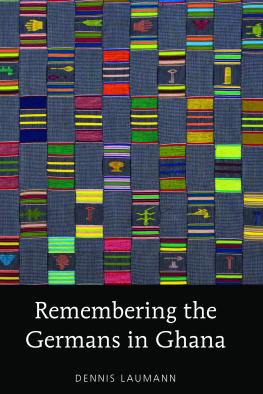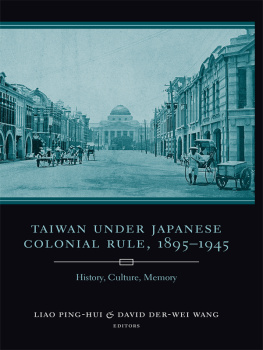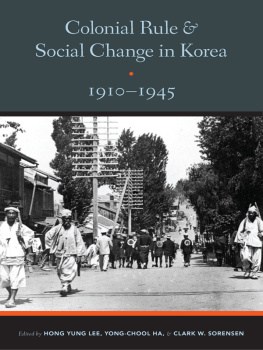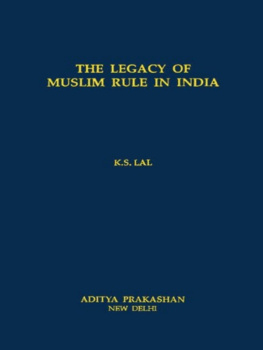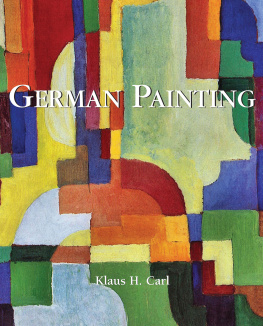Preface
This volume addresses central questions about the historical memory and cultural heritage of German colonial history. Discussing it from various perspectives are ten scholars from formerly colonized societies in Africa, Asia and Oceania as well as European and American scholars working in the fields of colonial history. For a long period, German colonial history did not receive significant attention in the field of historical studies. While historians in other countries such as France and Great Britain began discussing their colonial legacy during decolonization, in contrast, West German postwar society as a whole, including its leading intellectuals, writers and academics, were more involved in their own history during World War II and the Holocaust. After a few publications in the 1960s and 1970s, West German historians became interested in German colonialism in the 1980s. In the beginning, most studies shared a focus on political history, diplomatic history, the role of the Christian missions, migration, and the economic dimensions of colonialism and imperialism. However, East German scholars were more interested in German colonialism and historical research had already begun in the 1950s. Nevertheless, their distinct view was informed by Marxist theory. Therefore, fascism was understood in the larger framework of capitalism, while colonialism as well as imperialism were viewed as manifestations of capitalism.
The hesitation of historians to write about German colonial history has been pronounced because of the German colonial empires short and fleeting duration. German colonial history lasted only for thirty years from 1884 to 1919. Many historians and the public seemed to believe that such a brief history did
After something of a lull in the 1980s, interest among both academics and the wider intellectual public in German colonial history has recently been thriving, largely in response to the fallout from globalization. But while younger historians in Germany have started to produce new and well-researched histories of German colonialism that confront the whole spectrum of the colonial world from everyday culture to racist politics, the main terminology seems to have changed. Most historians now shy away from concepts of imperialism or colonialism, preferring the differently inflected and somewhat cleaned-up language of empire. During the 1960s imperialism and colonialism were used to highlight the coercive domination and exploitative relations imposed by metropolitan countries on the more vulnerable parts of the world, above all in the period of high-imperialism and intensified expansion between the 1880s and the First World War. The current understanding of empire however often recedes to the sphere of international politics such as foreign policy making, national security concerns, geopolitical strategy, international monetary policy, trade agreements, international policing, and the deployment of military force.
In the wake of the burgeoning interest in cultural history, new scholarship has shown that there was an impressive dissemination of colonial ideas into all possible areas of popular culture and everyday working-class life during the period. The thrust of this new historiography has challenged the idiosyncrasy or insignificance of empire for ordinary life, but rather highlighted its all-prevailing presence. In other words, research on the topic of popular involvement in imperialism came to opposite conclusions than the research on the thinness of empire in German history. This dichotomy, between an approach stressing the relative shallowness of colonialisms impact inside the home society and one arguing for its cultural impact, marks most of the relevant historical research. Even the recent embrace of transnational in German history has only reaffirmed this dichotomy, because the colonies are now seen as an example among many others of Germanys growing interconnectedness in a larger set of global links. It seems, that the transnational perspective has often implicitly downplayed the significance of colonial histories.
All the recent studies have mostly focused on German actors and experiences. Few European scholars have systematically studied colonial subjects and their agency. As Jrgen Zimmerer has reminded us: Analysing and explaining the dreams of the colonizers is not sufficient for understanding colonialism. It tells us nothing, for example, about the colonized, let alone telling the story from their perspective. As a result of these factors scholarship on German colonialism lacked, and continues to lack perspectives that pay attention to a wider range of social, economic, and political interactions and entanglements between Europeans and the local people, the intellectual history of formerly colonized areas, the agency of colonized individuals and societies, and the configurations of postcolonial developments.
Building on the book German Colonialism Revisited African, Asian, and Oceanic Experiences edited by Nina Berman, Klaus Mhlhahn, and Patrice Nganang (2014), this volume is designed to contribute to and expand the ongoing discussion of German colonialism with a fresh focus on the agency of those affected by German colonialism in Africa, Asia and Oceania. This book is a compilation of the multidisciplinary research that has been presented at the symposium The Legacy of German Colonial Rule, which was hosted by the German Historical Museum Berlin and the Freie Universitt Berlin on May 25 to 27, 2016. By focusing on the history of contact, interaction, exchange and mutual influence, this volume aims to intervene in current debates on transnational and intercultural processes and to highlight the ways in which the colonial period is embedded in larger processes of globalization, in particular the global expansion of capitalism, technology, and the western legal framework, but without ignoring the agency of local people. The following chapters reveal the results of this approach.
In his introduction, Frederick Cooper explores the relation of world history and political imaginaries such as colonies, empires and nations in the twentieth century. He suggests that German colonialism can only be fully conceived when thinking about the relationship of different forms of the state in this period. Coopers general approach shows that the history of empires and the history of nation-states have shaped the political landscape of the world in a more complex relationship and created a more diverse set of alternatives than a dichotomy of colonial empires versus nation-states. His thought-provoking essay pushes readers towards new ways of thinking outside the conventional framework in which they are located and urges them to consider differences among people without objectifying them.



